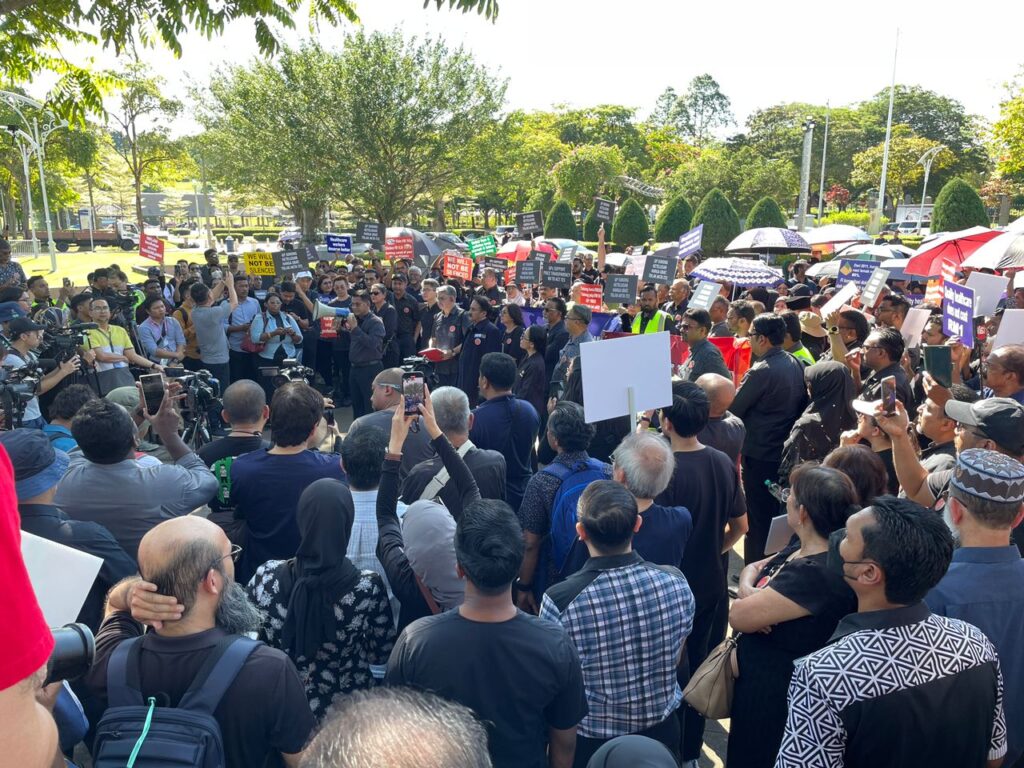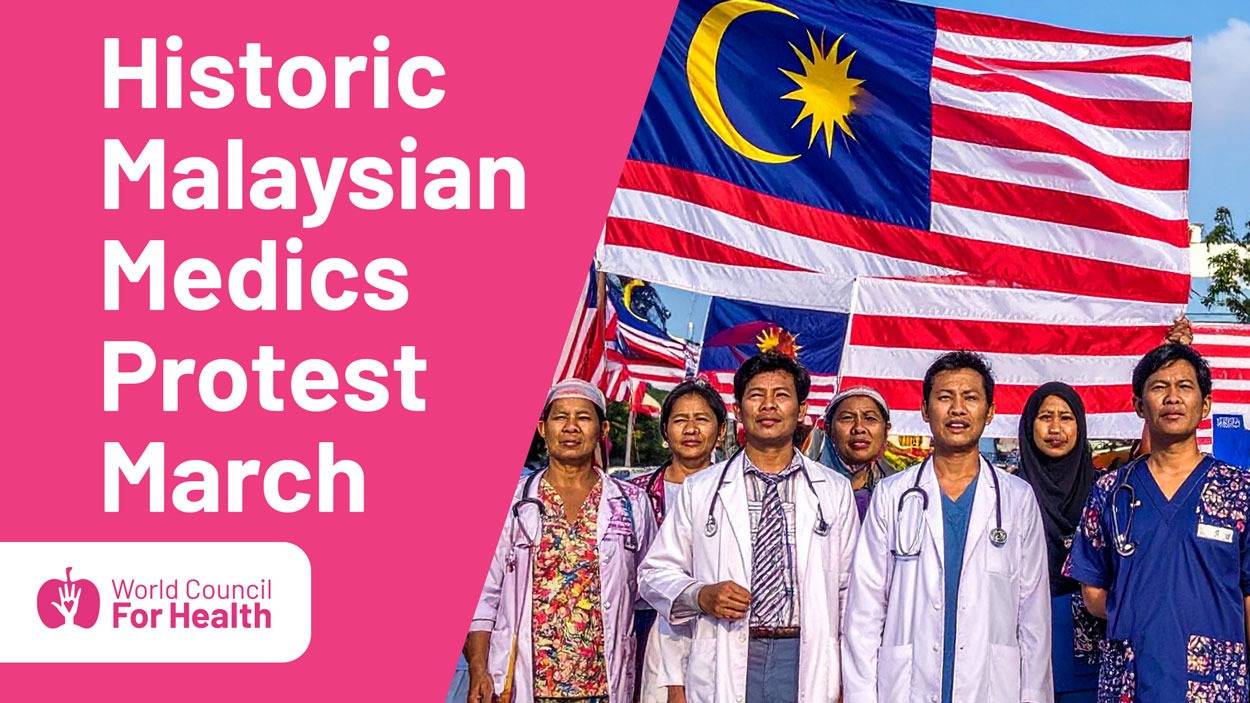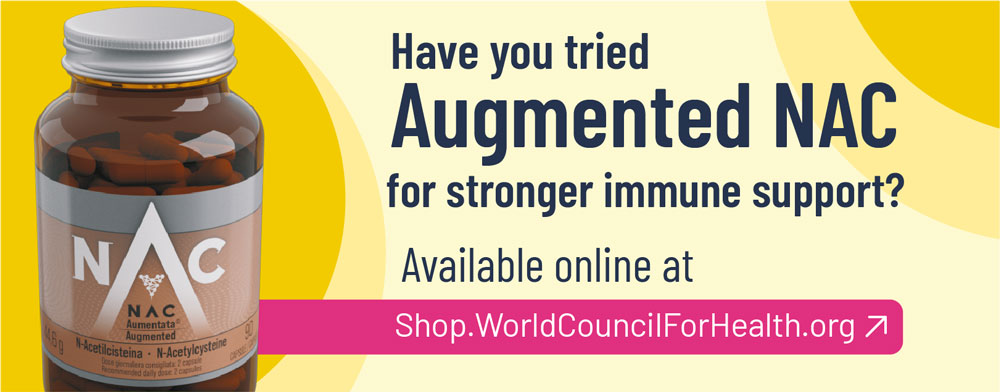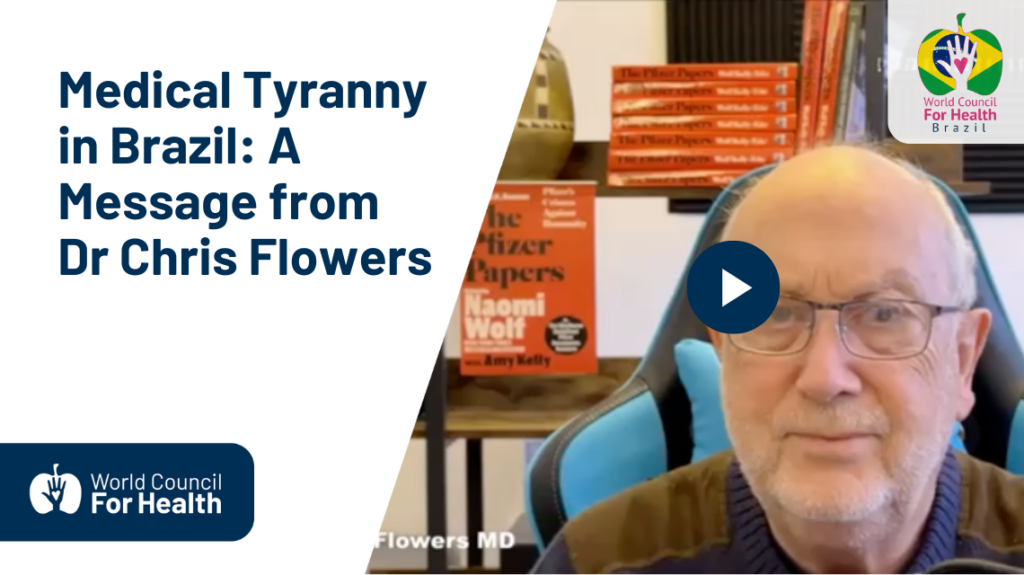6 May 2025 Malaysia: More than 600 doctors gathered in Putrajaya to protest against the drug price display order, demanding drug price controls in Malaysia.
The doctors rallied against the drug price display order under Act 723: Price Control and Anti-Profiteering Act 2011). Issues include the extension of Act 723 to the healthcare sector and the enforcement of the Medicine Price Labelling Order 2025, without proper engagement.
Doctors and clinicians argue that the regulation of medicine and display in private clinics must fall under Act 586: Private Healthcare Facilities and Services Act 1998 – not Act 723 Price Control and Anti-Profiteering Act 2011, which is deemed inappropriate for regulating clinical service environments.

Read the Memorandum from Dr. Kalwinder Singh Khaira, President of the Malaysian Medical Association:
YAB Dato’ Seri Anwar Ibrahim,
Prime Minister of Malaysia,
Pejabat Perdana Menteri Malaysia,
Blok Utama,
Bangunan Perdana Putra,
Pusat Pentadbiran Kerajaan Persekutuan,
Putrajaya,
Malaysia
YAB Dato’ Seri,
With the greatest respect and in the best interest of the Malaysian public and the medical profession, we, the undersigned medical associations, submit this memorandum to express our grave concern over unresolved issues that have severely impacted the private primary healthcare sector. These issues include the extension of Act 723 (Price Control and Anti-Profiteering Act 2011) to the healthcare sector and the enforcement of the Medicine Price Labelling Order 2025 without proper engagement, the stagnation of general practitioner (GP) consultation fees for more than three decades and the unregulated operations of Third-Party Administrators (TPAs) within the healthcare ecosystem.
- Concerns Over the Implementation of the Price Control and Anti-Profiteering Act 2011 (Act 723) and the Medicine Price Labelling Order 2025 on the healthcare sector
While the medical associations fully support the principle of transparency in medicine pricing, we strongly object to how the Price Control and Anti-Profiteering (Medicine Price Labelling) Order 2025 is being enforced on private clinics under Act 723 without consultation and engagement with the affected medical fraternity, especially GPs. At an advocacy meeting by the Ministry of Health in February 2025, the Health Minister clearly and openly stated that any enforcement of medicine price transparency for GP clinics would only occur after the long-overdue revision of consultation fees is carried out. Also, many queries were raised as to why Act 723 is being used and on its implementation and enforcement. However, this promise has not been honoured and all the queries raised remain unanswered. The policy was implemented on 1st May 2025 with a gazette announcement only one day earlier on 30th April 2025. There was no dialogue, despite repeated requests for stakeholder engagement and a separate request to meet the Ministry of Domestic Trade and Cost of Living by MMA remains unanswered till now. More importantly, doctors, clinics and the medical associations strongly argue that the regulation of medicine transparency and display in private clinics must fall under the Private Healthcare Facilities and Services Act 1998 (Act 586) — not the Price Control and Anti-Profiteering Act 2011 (Act 723), which is inappropriate for regulating clinical service environments. Act 586 was specifically enacted to regulate private healthcare facilities, ensuring a balance between clinical governance, patient safety, and fair pricing. Enforcing a pricing display under a commercial law designed for price control by traders is ill-suited to the nuanced needs of patient care and could lead to unintended consequences, such as patients making decisions based on price alone, rather than professional medical advice. - Unrevised Private GP Consultation Fees Since 1992
Consultation fees for private GPs were proposed by the Malaysian Medical Association (MMA) in 1992 and later adopted into law under the Private Healthcare Facilities and Services Act 1998 (Act 586) when it was gazetted in 2006. The fees were fixed between RM10 to RM35 under Schedule 7. Since then, they have remained unchanged for over 33 years. These rates have not reflected the realities of rising operational costs, inflation, increasing staff salaries, technology adoption, regulatory requirements and the escalating expectations for documentation and digitalization. General practitioners play a pivotal role as frontliners in community healthcare, especially in providing healthcare services. Yet, it remains the only professional sector in Malaysia whose fees have been frozen for more than three decades. This long-standing neglect has eroded morale and threatens the sustainability of the clinics, particularly those in rural and semi-urban areas. Despite years of appeals by the medical associations, there has been no implementation of a revised fee schedule. This is unjust and places an unfair burden on private practitioners who continue to serve the rakyat diligently. - Urgent Need for Regulation of Third-Party Administrators (TPAs)
The unchecked operations of Third-Party Administrators (TPAs) continue to place enormous strain on the private healthcare sector. These entities act as intermediaries between employers/insurers and GPs, and for years: Arbitrarily impose high administrative fees on clinics; Fix low consultation rates, often towards the lower end of the Schedule 7 rate of RM 10-35; Cause delays in payment of claims, affecting clinic cash flow and operational sustainability; And now, more alarmingly, have begun outsourcing long-term medication prescriptions to third-party pharmacies via e-prescriptions, bypassing the attending doctors. This last practice is especially troubling. It is not aligned with evidence-based clinical management and threatens patient safety by removing continuity and exposing patients to increased rates of complications of non communicable diseases. Since 2015, medical associations have repeatedly raised these issues with the Ministry of Health and other agencies. Yet, despite the mushrooming of these TPAs, there is no specific legislation or regulatory framework to govern TPA operations in Malaysia’s private healthcare landscape. The continued inaction has emboldened TPAs, resulting in the ongoing commercialisation of healthcare, which compromises ethical practice and threatens patient-centred care. - Foreign Equity Concerns in the Malaysian Healthcare System
There is growing concern regarding the increasing foreign equity ownership in Malaysia’s healthcare sector. While foreign investment brings capital, technology, and expertise, it also poses risks to national health sovereignty, affordability, and equitable access. The key concerns are: Access and Affordability – Foreign-owned private facilities often target medical tourists and high-income patients, potentially diverting resources from the local population and inflating healthcare costs. Regulatory Oversight – A higher presence of foreign entities may complicate regulatory enforcement, particularly in ensuring compliance with national healthcare priorities and standards. Profit-Driven Models – Foreign investors may prioritize profitability over public health outcomes, risking reduced investments in unprofitable but essential services.
Conclusion and Appeal
YAB Dato’ Seri, the Medical Associations and societies as below appeals to your good office and the
Government to urgently:
Remove the private clinics from the provisions of Act 723. All policies on healthcare should be and only be under the ambit of Act 586, which is the specific Act for the private healthcare facilities and services. As a professional service playing its role as the guardian of the healthcare of the country, the medical fraternity demands that it not be grouped as a retail business under the enforcement of the Ministry of Domestic Trade and Cost of Living. The medical profession stands ready to engage with the Ministry of Health to do what is best for patients’ rights, including price transparency, under Act 586.
Direct the Ministry of Health to implement the long-overdue revision of GP consultation fees under Act 586, with the rates being reflective of current economic realities of operating clinics and the fact that they have remained unchanged for 33 years.
Immediately initiate a national framework to regulate TPAs, including oversight on their fee structures, administrative practices, and clinical outsourcing. The commonly given answer by the Health Ministry of it being not under their domain should not hold and new regulations and/or amendments be made to regulate them.
Reassess foreign equity caps in private healthcare facilities, especially in critical service areas.
Ensure that all future policies affecting the private healthcare sector, including pricing and service delivery, is channelled through the proper legal framework (Act 586) with full stakeholder consultation.
Our healthcare system cannot thrive without a robust and fair private primary care sector. GPs are not merely service providers; they are partners in public health. But we need fair policies, appropriate legal frameworks, and meaningful engagement from the government to continue our role effectively. The closing of clinics, which number around 11,000 presently, will have a long term effect on primary healthcare in the country and put further strain on the already overburdened public healthcare facilities.
We trust in your wisdom and leadership to address these long-standing matters and safeguard the integrity of Malaysia’s healthcare system.
With highest respect and sincerity,
Yours faithfully,
Dato’ Dr. Kalwinder Singh Khaira
President
Malaysian Medical Association (MMA








